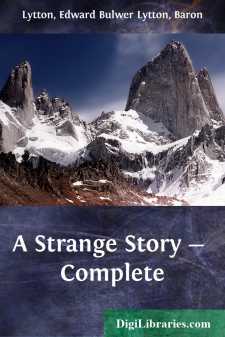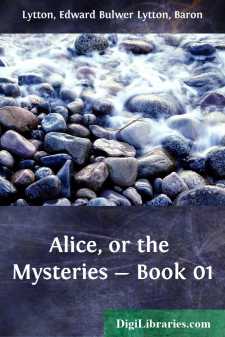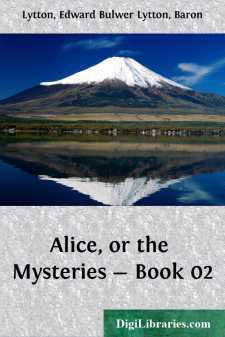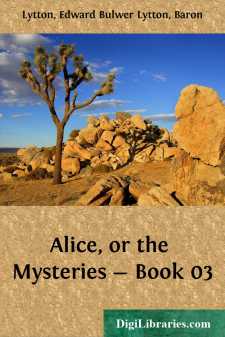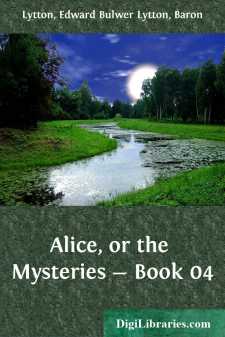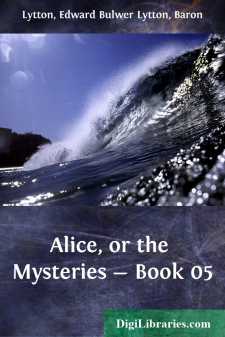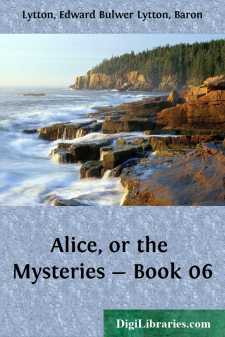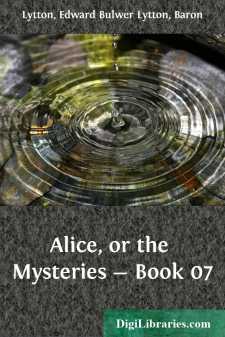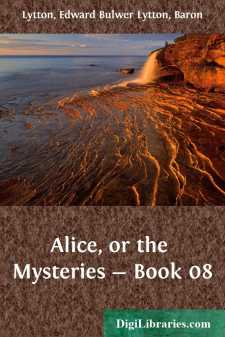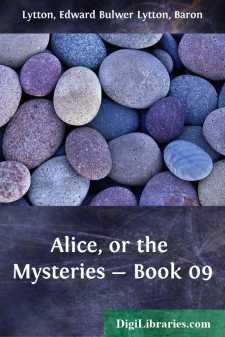Categories
- Antiques & Collectibles 13
- Architecture 36
- Art 48
- Bibles 22
- Biography & Autobiography 813
- Body, Mind & Spirit 142
- Business & Economics 28
- Children's Books 16
- Children's Fiction 13
- Computers 4
- Cooking 94
- Crafts & Hobbies 4
- Drama 346
- Education 46
- Family & Relationships 57
- Fiction 11829
- Games 19
- Gardening 17
- Health & Fitness 34
- History 1377
- House & Home 1
- Humor 147
- Juvenile Fiction 1873
- Juvenile Nonfiction 202
- Language Arts & Disciplines 88
- Law 16
- Literary Collections 686
- Literary Criticism 179
- Mathematics 13
- Medical 41
- Music 40
- Nature 179
- Non-Classifiable 1768
- Performing Arts 7
- Periodicals 1453
- Philosophy 64
- Photography 2
- Poetry 896
- Political Science 203
- Psychology 42
- Reference 154
- Religion 513
- Science 126
- Self-Help 84
- Social Science 81
- Sports & Recreation 34
- Study Aids 3
- Technology & Engineering 59
- Transportation 23
- Travel 463
- True Crime 29
Edward Bulwer Lytton Lytton
Edward Bulwer Lytton (1803–1873) was a prominent English writer, politician, and playwright, known for his prolific output in various literary genres. He authored the famous opening line "It was a dark and stormy night" in his novel "Paul Clifford" (1830) and popularized phrases such as "the pen is mightier than the sword." Lytton also served in the British Parliament and held the title of 1st Baron Lytton, significantly influencing Victorian literature and politics.
Author's Books:
Sort by:
CHAPTER I. In the year 18— I settled as a physician at one of the wealthiest of our great English towns, which I will designate by the initial L——. I was yet young, but I had acquired some reputation by a professional work, which is, I believe, still amongst the received authorities on the subject of which it treats. I had studied at Edinburgh and at Paris, and had borne away from both those...
more...
CHAPTER I. Who art thou, fair one, who usurp'st the place Of Blanch, the lady of the matchless grace?—LAMB. IT was towards the evening of a day in early April that two ladies were seated by the open windows of a cottage in Devonshire. The lawn before them was gay with evergreens, relieved by the first few flowers and fresh turf of the reviving spring; and at a distance, through an opening...
more...
CHAPTER I. THERE is continual spring and harvest here— Continual, both meeting at one time; For both the boughs do laughing blossoms bear, And with fresh colours deck the wanton prime; And eke at once the heavy trees they climb, Which seem to labour under their fruit's load. SPENSER: The Garden of Adonis. Vis boni In ipsa...
more...
CHAPTER I. YOU still are what you were, sir! . . . . . . . . . With most quick agility could turn And return; make knots and undo them, Give forked counsel.—Volpone, or the Fox. BEFORE a large table, covered with parliamentary papers, sat Lumley Lord Vargrave. His complexion, though still healthy, had faded from the freshness of hue which distinguished him in youth. His features,...
more...
CHAPTER I. ABROAD uneasy, nor content at home. . . . . . . And Wisdom shows the ill without the cure. HAMMOND: Elegies. TWO or three days after the interview between Lord Vargrave and Maltravers, the solitude of Burleigh was relieved by the arrival of Mr. Cleveland. The good old gentleman, when free from attacks of the gout, which were now somewhat more frequent than formerly, was the...
more...
CHAPTER I. Do as the Heavens have done; forget your evil; With them, forgive yourself.—The Winter's Tale. . . . The sweet'st companion that e'er man Bred his hopes out of.—Ibid. THE curate of Brook-Green was sitting outside his door. The vicarage which he inhabited was a straggling, irregular, but picturesque building,—humble enough to suit the means of the curate,...
more...
CHAPTER I. . . . THIS ancient city, How wanton sits she amidst Nature's smiles! . . . Various nations meet, As in the sea, yet not confined in space, But streaming freely through the spacious streets.—YOUNG. . . . His teeth he still did grind, And grimly gnash, threatening revenge in vain.—SPENSER. "PARIS is a delightful place,—that is allowed by all. It is...
more...
CHAPTER I. Luce. Is the wind there? That makes for me. Isab. Come, I forget a business. Wit without Money. LORD VARGRAVE'S travelling-carriage was at his door, and he himself was putting on his greatcoat in his library, when Lord Saxingham entered. "What! you are going into the country?" "Yes; I wrote you word,—to see Lisle...
more...
CHAPTER I. . . . SHE is young, wise, fair, In these to Nature she's immediate heir. . . . . . . . . . Honours best thrive When rather from our acts we them derive Than our foregoers!—All's Well that Ends Well. LETTER FROM ERNEST MALTRAVERS TO THE HON. FREDERICK CLEVELAND. EVELYN is free; she is in Paris; I have seen her,—I see her daily! How true it is that we cannot...
more...
CHAPTER I. THE privilege that statesmen ever claim, Who private interest never yet pursued, But still pretended 'twas for others' good. . . . . . . From hence on every humorous wind that veered With shifted sails a several course you steered. Absalom and Achitophel, Part ii. LORD VARGRAVE had for more than a fortnight remained at the inn at...
more...


